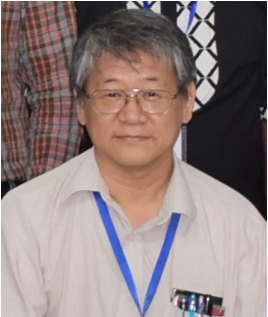NUITM-KEMRI Project
Introduction
In 2005, Nagasaki University Institute of Tropical Medicine (NUITM) formally established Kenya research station within the Kenya Medical Research Institute’s (KEMRI) Centre for Microbiology Research (CMR), which was the start of the NUITM-KEMRI Project.
The project’s main objective has been to conduct research on tropical and infectious diseases with the training and capacity building of young scientists.
The Health and Demographic Surveillance System (HDSS)
NUITM runs two HDSS sites in Mbita and Kwale. These provide structures for the longitudinal dynamic cohort for continuous surveillance of health and demographic characteristics of the communities involved and are used as a platform for epidemiological and clinical studies.
Several studies are nested on the HDSSs, both funded and postgraduate students’ projects. Among these is a birth cohort at the Kwale site that is studying dynamics of maternal and child health and WIRE project which is focusing on maternal and child health
Malaria Research
This research activity is executed in collaboration with Osaka City University. Based on their previous experience in sustainable malaria elimination on Pacific Island, they intend to apply the same strategy on the islands in Lake Victoria, to examine whether malaria can be eliminated and whether malaria freedom can be maintained by a long-term community-directed strategy that includes sustainable ITN use and robust surveillance.
Parasitology Research
The impact of poly-parasitism on health status and whether poor health status itself may be a risk factor in the acquisition of multi-species parasitism in Kenyan children in rural areas of Kwale and Mbita districts/counties is the core research question for this research group.
Entomology Research
This group carries out studies on mosquito vectors through extensive field surveys. Studies in this field include assessment of vectorial capacity, behavioral studies among others, towards understanding the distribution of vectors and control dynamics.
Dental Health Research
This is a research initiative by the Nagasaki University, School of dental science. Their objective is to establish the state of dental health in select areas in Kenya.
The group conducts oral health survey to investigate the status of oral health among children and adults. This research will answer important questions on oral health needs and determinants of oral health
Diarrheal Diseases Study
The diarrheal diseases study was set up in 2007 to examine etiology of diarrhoea in children. It covered a post-cholera outbreak period that generated epidemiological information on cholera outbreaks. It initiated a included a pre-rotavirus vaccine survey and continued the surveillance post-vaccine introduction to establish trends of rotavirus infection and continuously inform vaccine administration. Examination of diarrhoea etiologies in children with anti-microbial resistance surveillance is still ongoing.
Tuberculosis Study
The objective of this project is to devise a comprehensive approach to improve early detection of potential TB patients, presenting with signs and symptoms suggestive of TB, but are neither diagnosed as having TB nor confirmed as TB positive. The disease remains an important public health problem globally and a leading cause of death despite being preventable and treatable. Kenya is among the 30 high TB burden countries in the world that account for about 90% of the global burden. In Kenya, Mombasa County is one of the high TB burden areas. Finding people with TB and notification of new cases as well as TB diagnosis remains a challenge in Kenya.
Ageing study
Research on the daily life, health status and care networks among the older persons in Kenya, especially in rural areas is necessary to improve the health status and wellbeing for the older persons. The overall objective of this research is to describe the life, the health and care-network of older persons in Kwale County.

